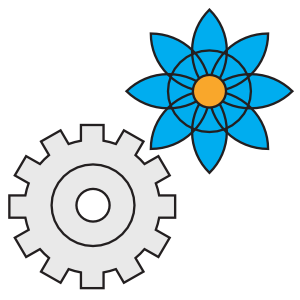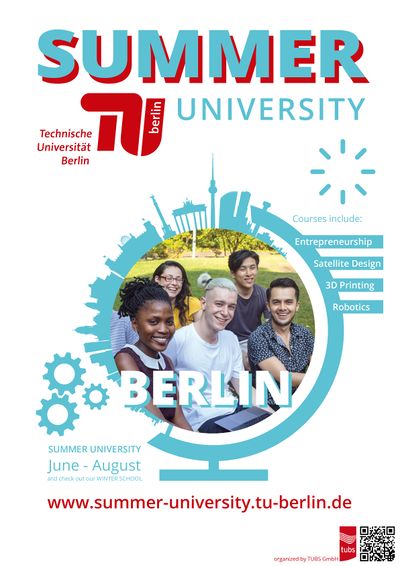SU:Start: Unterschied zwischen den Versionen
(→TU Berlin - Blue Engineering Summer School) |
(→TU Berlin - Blue Engineering Summer School) |
||
| Zeile 11: | Zeile 11: | ||
This course acknowledges current Green Economy trends, and the UN Rio+20 debate, which show how there is a strong demand for technological innovations as a remedy for ecological destruction and as a pathway to poverty eradication. | This course acknowledges current Green Economy trends, and the UN Rio+20 debate, which show how there is a strong demand for technological innovations as a remedy for ecological destruction and as a pathway to poverty eradication. | ||
| − | ''' | + | '''[https://www.tu-berlin.de/menue/summer_university/summer_university_term_3/blue_engineering/ Course Registration and further information for the TU Berlin Summer School]''' |
== Learning Goals and Syllabus == | == Learning Goals and Syllabus == | ||
Version vom 2. März 2020, 16:09 Uhr
TU Berlin - Blue Engineering Summer School
This is a discussion-based course dealing with the effects of technology on individuals, society and nature. It focuses on what could be done to create a more responsible technology process that addresses the needs of all stakeholders and at the same time minimizes the risks and harms of its implementation.
The course promotes a deep understanding of social and ecological responsibility by using a variety of alternative teaching methods. Through an untraditional classroom environment and course structure, participants will challenge the condundrum of sustainability, as a discipline, being either ignored or solely focused on technological solutions.
The course promotes student-directed learning by communal discussion and decision making in order to establish a co-responsibility of the direction and learning outcomes. Students will be able to deal with complex social, political and economic interdependencies by considering different values and interests within a global perspective and in one’s own class(room). Through several communication techniques, the class exercises encourage students to identify and map key aspects of the problems rather than just trying to solve them. This method responds to specific user needs in order to cooperatively discuss the role of technologies which are socially useful, locally adapted, durable and reparable.
This course acknowledges current Green Economy trends, and the UN Rio+20 debate, which show how there is a strong demand for technological innovations as a remedy for ecological destruction and as a pathway to poverty eradication.
Course Registration and further information for the TU Berlin Summer School
Learning Goals and Syllabus
The participants will together analyze and evaluate the relations of technology, individuals, nature and society in order to:
- Understand different perspectives
- Work out a collective understanding based on values
- Develop own opinions
- Evaluate interdependencies and reach agreement on how to balance them
- Act accordingly
You may find the syllabus useful when discussing with your home University whether the ECTS credits attainable for this course are accepted by them: https://www.tu-berlin.de/fileadmin/a70100710_summeruniversity/Course_Syllabi/Summer_2020/TU_Summer_School_Term_3__Blue_Engineering.pdf
Course components
The course will consist of:
- Regular lectures (including guest-speakers)
- Building blocks organized by the lectures and the participants. Participants will individually create, conduct and finally document their own building blocks for further use
- Weekly excursion (e.g. waste/drinking water treatment plant, recycling plant, lignite pit and lignite power plant)
Learning journals (to be kept by each participant)
- Building blocks are study-elements developed by lecturers and students, which provide instructions for facilitating a 60 to 90 minutes course session. Building blocks will showcase multiple perspectives on complex topics, e.g., ethical codes, recycling, pre-implementation diagnostics, social businesses and cooperatives. Every building block uses a set of widespread teaching formats such as case studies, story-telling and station learning, as well as adaptations and combinations of known methods, such as learning cascades, advocatus diaboli, the triangular method, evaluation sculpture, educational games, challenges and more.
The idea behind this great variety of teaching methods is to create an environment that is participant-, group- and discourse-focused. It encourages participants to exchange ideas and opinions, learn from each other and be an active part in the co-creation of the course itself. Each participant will be responsible for their own learning experience, and that of the others.

